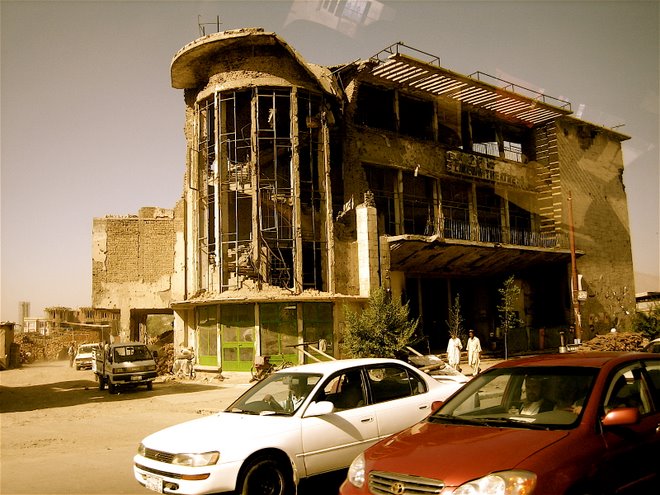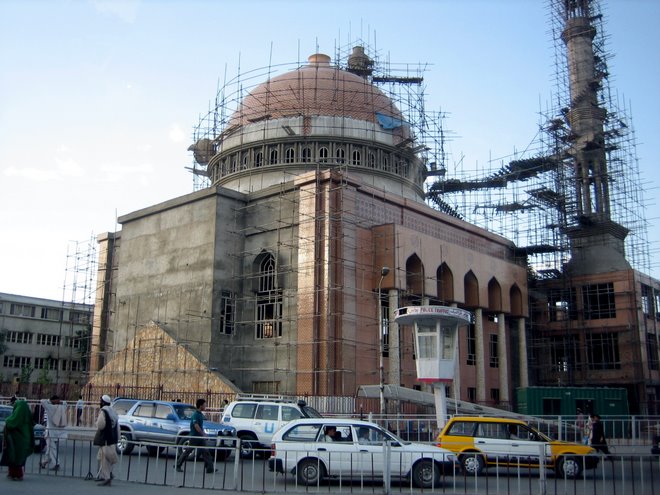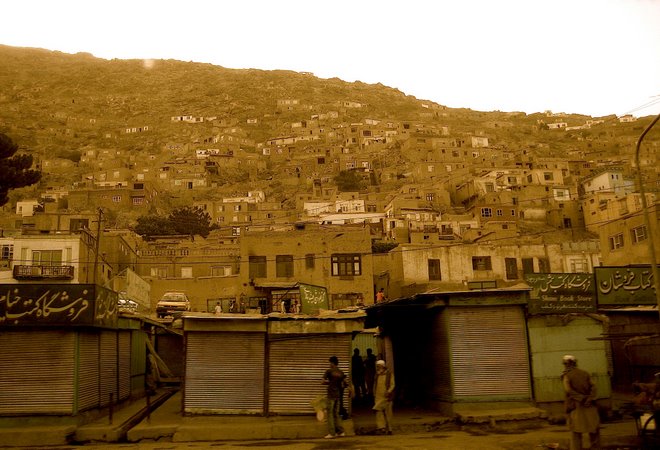Kabul University is located about twenty minutes away by car in the southern part of the city. As we drove through Kabul in the early morning, I observed people rushing to work and starting their daily activities. I am sure, however, that many of those people never had a chance to work that day as I saw many men lined up in groups waiting for work to come along.
Afghanistan is a hit-or-miss place like many other developing countries. Upon seeing many parts of Kabul, the question that I ask myself, however, is whether the country is truly developing. While exploring the capital, I kept asking Najib, our driver, about the city center. I was hoping to see some kind of a center with buildings in a more or less decent shape. What I saw instead was a city that looked like a giant dusty village with the signs of prolonged war everywhere. There are war-torn buildings, poor roads and chaotic traffic that is navigated by the traffic law enforcement people. With a weary smile on his face, Najib explained to me in Dari that long years of conflict has made Afghanistan "thin."
I saw the worn-out city Najib talked about, and in many ways it reminded me of the images of Berlin in 1945. While Germany was quickly reconstructed after WWII, few Afghans believe that the promises of reconstruction of the Western nations should be taken seriously. They have reasons to be cynical. It's been almost six years now since the U.S. invasion. Just like Afghanistan was abandoned by the West after the Soviet withdrawal in 1989, the hopes of the Afghans again fell short with the invasion of Iraq and the gradual disappearance of the country from the spotlight of the international community.
Many war remnants of Kabul remind me of my youth. I remember clearly how the soldiers of the 40th Soviet Army were seen off to war in Afghanistan. Soon afterwards, the military cargo planes were busy delivering the coffins of young men from this troubled land. My own neighborhood didn't escape the impact of war across the border as a few men I knew were drafted as well. Those who returned were treated as heros only for a short period of time: until the break-up of the Soviet Union. Many of them subsequently felt abandoned by their newly established governments as the Afghan war had become controversial in the post-Soviet times. Those who didn't make it, perhaps never had a chance to realize that they practically fought a futile war. From Mazar-e Sharif to Kandahar, Afghanistan has sucked so many lives in the past several decades, both on the Afghan and the Soviet sides and in the midst of the endless civil war. The country truly has a complex historical legacy.
Subscribe to:
Post Comments (Atom)





No comments:
Post a Comment